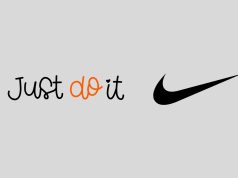In today’s competitive job market, having the right skills and experience is important—but it’s no longer enough. Your personal brand is the unique combination of your skills, values, personality, and reputation that sets you apart from others. It’s how people perceive you professionally, and it plays a critical role in shaping your career. Whether you’re aiming for a promotion, seeking new opportunities, or wanting to be recognized as a leader in your field, building a strong personal brand is essential.
But how do you build a personal brand that authentically represents who you are and resonates with your professional network? While many career advisors might tell you to polish your LinkedIn profile and network more, a scout takes a more holistic, hands-on approach to help you build and maintain a brand that’s true to you and your long-term goals.
In this blog, we’ll explore how scouts help professionals develop a powerful, authentic personal brand—one that enhances their professional presence and sets them up for long-term success.
1. Discovering Your Unique Value Proposition
Your personal brand is a reflection of your unique value proposition—the distinctive combination of skills, strengths, and qualities that make you stand out from the crowd. However, many professionals struggle to identify what makes them truly unique, leading to generic or unfocused branding efforts.
How a Scout Helps: Scouts help you discover your unique value proposition by working closely with you to identify your strengths, values, and career goals. They go beyond surface-level achievements and dig deeper into what truly sets you apart. Through reflective exercises, assessments, and conversations, scouts help you pinpoint the unique contributions you bring to your industry, your team, or your clients.
Example: Suppose you’re a project manager with years of experience, but you’re unsure of what differentiates you from others in the same field. A scout would help you discover that your unique strength lies in your ability to manage complex cross-functional teams with empathy and emotional intelligence—qualities that may not be common among other project managers. By recognizing this, you can begin to build a brand that highlights your leadership style and collaborative approach.
2. Crafting an Authentic Brand Story
Once you’ve identified your unique value, the next step is crafting your brand story. This is the narrative that ties together your experience, skills, and values in a way that resonates with your audience—whether that’s your employer, colleagues, or industry network. An authentic brand story not only highlights your achievements but also communicates why you do what you do and the impact you want to make.
How a Scout Helps: Scouts help you craft a brand story that feels authentic and aligned with your career goals. They work with you to connect the dots between your past experiences and future aspirations, ensuring that your story is both compelling and genuine. This story becomes the foundation for how you present yourself in person, online, and through your work.
Example: If you’re transitioning from a corporate career to the nonprofit sector, a scout would help you weave your previous experiences into a cohesive narrative that shows how your corporate skills translate to making an impact in the nonprofit world. Rather than simply stating that you’re making a career change, your story would emphasize your passion for driving social change and the unique perspective you bring from your corporate background.
3. Aligning Your Brand with Your Long-Term Goals
One common mistake professionals make when building their personal brand is focusing only on their current job or role. While it’s important to be known for the work you’re doing now, your personal brand should also reflect where you want to go in the future. It’s about creating a consistent narrative that bridges the gap between your present and your aspirations.
How a Scout Helps: Scouts help you align your personal brand with your long-term goals. Whether you’re aiming for a leadership position, transitioning to a new industry, or becoming an expert in a niche field, a scout will guide you in shaping your brand to support those goals. They help you ensure that the image you project today sets you up for where you want to be tomorrow.
Example: If you’re currently in a mid-level marketing role but aspire to become a thought leader in digital marketing, a scout would work with you to align your brand with this goal. This might include creating content that showcases your knowledge, networking with industry influencers, and strategically positioning yourself as an expert in key areas of digital marketing.
4. Leveraging Online Presence Effectively
In today’s digital world, your online presence plays a significant role in shaping your personal brand. Social media platforms like LinkedIn, Twitter, and personal blogs offer you the chance to showcase your expertise, connect with industry peers, and position yourself as a leader in your field. However, building a strong online presence requires consistency, clarity, and authenticity.
How a Scout Helps: Scouts help you build and manage your online presence in a way that aligns with your personal brand. They offer strategic advice on how to use platforms like LinkedIn to highlight your strengths, share your brand story, and engage with your audience. Scouts also ensure that your online activity is consistent with your professional goals and values, so that everything you share or engage with contributes positively to your brand.
Example: If you’re a software developer aiming to become known for your expertise in artificial intelligence, a scout might help you create content—such as articles or posts—that showcase your knowledge in AI. They’d also guide you on how to engage with AI communities online, comment on relevant trends, and network with influencers in the field, building a brand that positions you as a knowledgeable, forward-thinking expert.
5. Building a Reputation of Trust and Credibility
A strong personal brand isn’t just about self-promotion—it’s about building a reputation of trust and credibility within your industry. Your personal brand needs to be backed up by consistent actions, contributions, and a demonstrated track record of success. In other words, people need to trust that you can deliver on what your brand promises.
How a Scout Helps: Scouts guide you in building credibility by helping you align your actions with your brand message. They encourage you to take on projects, speak at events, write articles, or volunteer in ways that showcase your expertise and reinforce your brand. Scouts also help you maintain consistency in your professional behavior, ensuring that your personal brand is built on a solid foundation of trust and reliability.
Example: If your personal brand is focused on being an innovative problem solver, a scout would help you identify opportunities to demonstrate this skill publicly. This could involve leading a high-profile project at work, speaking at an industry conference about innovative solutions, or publishing case studies that showcase your problem-solving abilities. Over time, these contributions build credibility and trust within your professional network.
6. Navigating Challenges and Maintaining Brand Integrity
As your career evolves, so too will the challenges you face. Whether it’s managing public setbacks, handling workplace conflicts, or navigating a career transition, these moments can either strengthen or weaken your personal brand, depending on how they’re handled. Maintaining brand integrity—especially during difficult times—is key to long-term success.
How a Scout Helps: Scouts provide guidance during challenging moments, helping you navigate setbacks while maintaining your brand’s integrity. They offer strategies for handling conflicts, responding to criticism, or reframing negative situations in a way that aligns with your personal brand. By offering real-time support, scouts ensure that your personal brand remains strong, even in the face of adversity.
Example: Suppose you’ve faced a public failure in your role, such as a project that didn’t deliver expected results. A scout would work with you to manage the fallout, helping you craft a response that takes accountability while also highlighting lessons learned and future plans. This approach not only maintains your brand integrity but can even enhance your reputation as someone who handles challenges with resilience and professionalism.
Conclusion
Building a powerful personal brand is essential in today’s professional world, but it requires more than just polishing your LinkedIn profile or networking at events. It’s about crafting an authentic, strategic narrative that reflects who you are, what you stand for, and where you want to go. A scout’s personalized, hands-on approach to personal branding helps you discover your unique value, align your brand with your long-term goals, and build a professional presence that’s both authentic and impactful.
Whether you’re just starting out in your career or looking to take your professional presence to the next level, partnering with a scout can help you build a personal brand that sets you apart and positions you for long-term success.




























